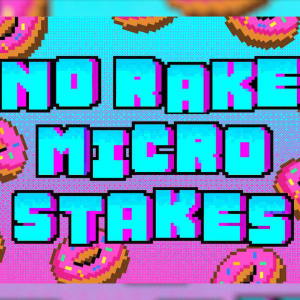Whether playing in a smoky poker room or online, the rules remain the same. Environments, however, play a significant role in the player experience. Playing at a live poker room involves players sitting face-to-face and weighing each other's body language. Online poker play happens virtually with little to no human interaction.
Understanding the differences helps you transition from one to another or choose the version that suits your style. In this article, we explore the key differences between the two environments and how they affect your gameplay experience.
Convenience and Ease of Access
In terms of convenience and accessibility, online poker lets you participate anytime and anywhere. You are restricted neither by distance nor by casino operating hours. Along with easy access to games, making deposits and withdrawals is just as hassle-free, thanks to a variety of online payment methods. One popular and trusted option among Canadian players is funding accounts through eCheck deposit casinos in Canada, which offer both security and simplicity. Whether you prefer credit cards, e-wallets, or bank transfers, funding your account is simple and fast.
Live poker requires a significant amount of time and effort to get to the gaming table. You typically spend hours commuting, waiting in line and buying poker chips. The time invested in poker tournaments is even more, as they often take long hours or multiple days to complete. All these considered, the convenience and accessibility offered by online poker remain unmatched.
Players' Tells and Psychological Battles
Players can observe opponents' behaviour and body language before making decisions during live poker. Experienced players know how to maximize player tells such as facial expressions, nervous tics, speed of play and even verbal cues.
Despite its other benefits, online poker takes away the psychological aspect of poker gameplay. To gain an advantage over opponents, online players rely mostly on betting patterns, statistics and timing of play to some extent. Due to the psychological elements, consistent winners at online poker may struggle to replicate that success at live casinos and vice versa.
Most Common Tells in Poker
Knowing how to read the opponents’ change in behaviour and preempt their moves at the gaming table can be a significant advantage. The table below presents a few of the common tells to study.
Game Pace and Multi-Playing
Regardless of when a physical casino opens, you can only play a few hands per hour due to manual shuffling, chip handling, and player interactions. This makes in-person poker slower, averaging about 30 hands an hour. In contrast, online poker doubles that number with automatic shuffling and dealing controlled by a computer algorithm. Players also have a set time to make decisions and can play multiple tables at once, making online poker faster and more popular.
Poker Game Selection
In terms of the poker variants offered by the two environments, online casinos typically host larger collections. Due to space and resource constraints, options at physical establishments are often limited, with many leaning heavily towards varieties of the popular games like Texas Hold’em. At top online sites, on the other hand, expect to see a variety of most of the popular variants, including:
- Seven-Card Stud
- Omaha
- Omaha Hi/Lo
- Razz Horse
- Five-Card Draw
- Texas Hold’em
These are available in variations and formats around the clock. Additionally, you can play many of these games in live tournaments. A top online casino always has multiple poker games and events, and may offer you a juicy bonus to try out more. In essence, the offerings at online poker cater to a wide range of gaming appetites.
Social Interaction and Dynamics
Playing at online gaming sites has several benefits over live poker. However, many players spend time, effort and resources visiting physical gaming establishments because of the social experience they offer. Apart from sizing up and analyzing their opponents' behaviours during gameplay, many see poker as a way to socialize with co-players from different spheres of life. The social components that make poker one of the most sought-after card games in history are hard to replicate virtually.
Conclusion
There is no clear winner between playing at a live poker room and an online casino, as players’ preferences and styles differ. Go for the traditional feel of a live poker room if the social interactions, physical tells and psychological warfare when playing sound good.
With a variety of poker games accessible via computer or mobile devices, some players see no need to commute to a physical casino. Regardless of where you play, the goal remains to outsmart your opponents while hoping for some luck. Choose the one that fits your situation and style and have fun.


